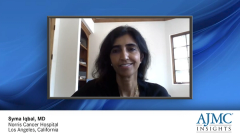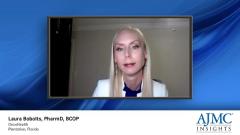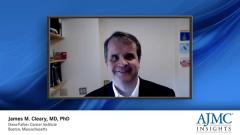
Optimizing Treatment Pathways for Patients with ESCC and GI Cancer
Syma Iqbal, MD, shares final insights into the ESCC and GI cancer treatment landscape, emphasizing the utilization of key diagnostic tools and innovative treatment strategies.
Episodes in this series

Syma Iqbal, MD: In terms of how we approach these patients, we do next-generation sequencing for all patients to assess for potentially targetable pathways. But at a minimum, these patients should be evaluated for the DNA mismatch repair genes, so their MSI [microsatellite instability] status, HER2, and PD-L1 CPS [combined positive score]. Other things based on agnostic approval of drugs include TMB [tumor mutational burden] status, NTRK—these have agnostic drug approvals—and MSI for immunotherapy.
In the trials that have been done by way of retrospective evaluation for patients who are MSI-high or who have DNA mismatch repair deficiency, we saw that those patients respond to immunotherapy regardless of the type of tumor, hence the broad FDA approval of immunotherapy for that population. In gastric cancer, we check all patients for MSI in particular. We see that patients who got chemotherapy plus immunotherapy or immunotherapy alone had a superior outcome compared with patients who got chemotherapy. That’s an important point to assess in all of our patients who present with esophagogastric cancer.
In the perioperative setting, what’s come about is that those same patients, those MSI-high patients, might not respond to chemotherapy. In retrospective evaluation, it appears that patients who are MSI-high and receive perioperative chemotherapy have a worse outcome. The incorporation of immunotherapy in that population is becoming more standard at most academic centers. In fact, many of us are giving immunotherapy alone to those patients based on some small studies that have been presented in upper GI [gastrointestinal] tumors as well as in other GI tumors that are MSI-high. The paradigm for MSI-high tumors or those patients with DNA mismatch repair deficiency is changing, and we’re moving away from chemotherapy in that population. That’s an important point to note as we assess all of these patients with esophagogastric cancer. The tumor profiling is a very important part of that process.
Transcript edited for clarity.
Newsletter
Stay ahead of policy, cost, and value—subscribe to AJMC for expert insights at the intersection of clinical care and health economics.











